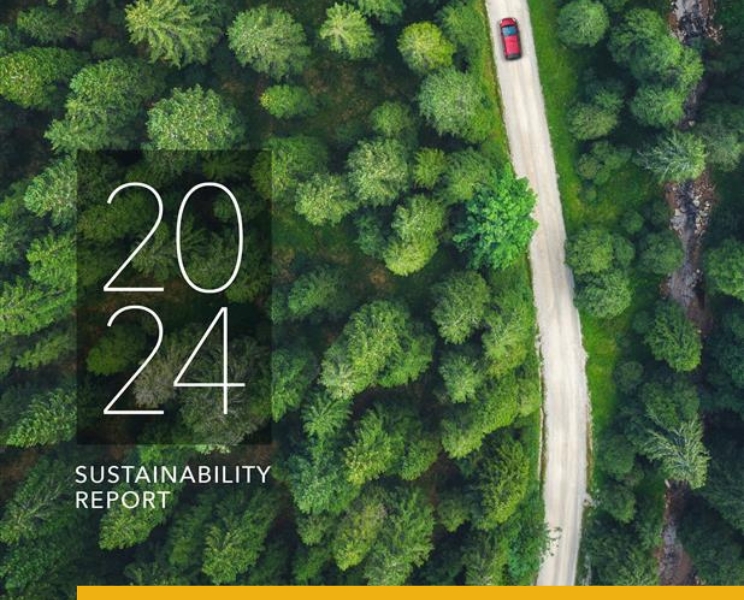As originally appeared in Autosphere, April 22, 2025
Author: Huw Evans
Autosphere: What do you feel is essential when it comes to having successful and consistent sustainability practices in today’s operating environment?
Drew Collier: In today’s environment, where there is a lot of noise around sustainability and a lot of unpredictability, it can be hard to get the facts and simplify what sustainability really represents. At LGM, we essentially define it via three core pillars. The first is the ability to measure it by having a science-based approach, particularly when it comes to things like Environmental and Social Governance, employee well-being and gender balance. The second, is to have an emphasis on transparency and that includes being honest and factual even when things aren’t always rosy. This is key to building trust with consumers—which is an essential part of being successful in the automotive retail space. A good example of this is acknowledging that while electric vehicles have their benefits, they are not for everyone or every use case and that needs to be identified. Finally, the third pillar regards business focus. This is especially important today, given how quickly the business environment can change. It was very easy to get caught up in the hype surrounding sustainability during the last business cycle. Now, with this new cycle, things are a lot more pragmatic but while that may be the case, it doesn’t mean that your focus should necessarily change. There are some sound reasons for having sustainability initiatives, particularly when they are rooted within good business practices. At LGM, we’ve tried to make it core to our strategy, and it’s one that’s built around how things always come full circle—how we’re supporting the OEMs that we work with, the brands that we work with, and the dealers. And this applies regardless of changes taking place in the industry. Ultimately it’s about fair treatment of people, those who work in the industry and the consumers they serve, which in the F&I space is huge.
AS: Can you tell us a little about LGM’s approach to sustainability and some of the key ways they are contributing to the organizations success?
DC: For us, as an organization, it’s important to provide a bit context. At LGM, we’ve always had a culture around sustainability and that extends from the company’s founder, Adam Hill. He really brought into the organization, the concept of giving back to the community, giving back to the industry, and that has been a fundamental aspect of the way in which we operate. In 2019, we formalized this concept, creating what we call our social purpose, and we embarked on a new strategic plan. This plan identified our purpose, as being responsible in creating mobility for all, and then really looking at some things that the automotive retail industry could be doing in a responsible way to improve, including elevating the consumer experience, as well as driving greater loyalty and trust in the brands that we work with. At LGM, we did this by identifying our business strategy around that, as well as having employees that love working at LGM and are focused on delivering a great customer experience. What we found was, that when you execute these two strategic priorities correctly, then it leads to profitable growth. It’s important to consider however, that it is not just about the revenue you generate but the relevance you have, how many customers you serve and the experience of the brands that you work with. When you’re able to deliver on that elevated employee experience, customer experience and profitable growth, that is when you need to focus on having a social and environmental responsibility, in being able to give back to the industry.
This is where you look for opportunities to engage your customers and engage your employees in doing that. And that’s basically how social responsibility fits into our business strategy. Regarding this, we’ve done variety of things. One of them goes back to 2016, where we got involved with dealers against distracted driving. Back then, there weren’t a lot of regulations regarding this, but our objective was to build momentum and awareness around the importance of safety on the roads. More recently, we’ve been working on initiatives, such as ensuring our investment managers are signatories to the United Nations principles of responsible investment, reducing our own greenhouse gas footprint and moving to a hybrid workplace where we’re not always in the office every day. This last one has already had a huge positive impact in that we’ve measured it and been able to demonstrate how we’ve reduced our carbon footprint as a result. We’ve worked with an organization called the UN Global Compact network to help identify some of the best practices and things we can look at in terms of being a better corporate citizen. In 2025, another initiative has been working toward creating a gender balance and more diversity within our workforce. We’ve discovered that when you have a diverse group of people from different backgrounds working together and collaborating, you tend to end up with a broader range of ideas, more creativity and out-of-the-box thinking, plus you also tend to have employees that are more readily able to identify with your customer base.
AS: Based on LGM’s own approach to sustainability practices, what do you think other organizations can take away when it comes to having and developing their own initiatives for the short, medium and long term?
DC: First of all, from a business perspective, you need to be doing it for the right reasons. For us at LGM, it’s not just altruistic [in doing it because it’s the right thing] but also because, it contributes to our business strategy. Focusing on sustainability and social responsibility has enabled us to build a strong employer brand and attract some of the best talent in the industry. I’m super proud of the team that we have in place at LGM, and it has provided us with exceptional output. We’ve had fantastic results that we’ve been able to create for our partners, delivering record setting growth, pen rates, and dealer profitability. Secondly, it’s important to have the right framework. It’s been tremendously helpful for us in working with organizations like UN Global, because they provide a framework for you, how you can measure yourself, and a yardstick against which you can measure. Each year, our goal is to improve, inching things up and bringing some of the best practices in terms of process, as well as training our teams. We’re also working with our dealer customers to help them learn more about it and the importance of creating a business environment that promotes fair treatment of consumers and responsible mobility. Even in an era where priorities have shifted away from sustainability goals and to aspects such as tariffs, it’s important to stay consistent and work toward your goals and look for innovative ways to do business and deliver superior outcomes for your organization, for your employees and for your customers.
AS: Can you tell us a little about how LGM’s approach to sustainability has resonated with organization’s customers and what it means, particularly from our industry perspective (automotive retail)
DC: There are a few examples that come to mind. One was being involved with setting up Canada’s first hydrogen fueling station, and from that we were able to develop relationships with certain OEMs which were involved in deploying this technology. This hydrogen initiative allowed us to engage with them on different levels and from that we were able to create great experiences for our customers. This essentially goes back to that concept of innovation and engaging our employees which in turn, allows them to create those great client experiences. Every month, we’re measuring our dealer experience, and it’s coming in typically around 95% with high levels of employee engagement. The key to maintaining and building upon this is to ensure that we’re constantly listening and that we are moving at a pace that is in lock step with our partners and doesn’t push us out ahead of them. Electric vehicle adoption is perhaps a good example of that. We look at some OEMs that have embraced the approach of offering a plug for all their vehicles whether battery electric or plug-in-hybrid and that’s been a far better approach than trying to mandate sales of battery electrics to people who don’t want to, or who aren’t in a position to purchase them. There is still lots to learn, but as we continue to evolve as an industry, LGM is proud to be part of that evolution and enabling initiatives that in the long run, tend to make things better, not just in a business sense but also from a social and environmental perspective.
AS: Is there anything else you’d like to mention?
DC: In an era where a lot of things have become very politically charged, it’s important to not try and simply take the moral high ground or declaring you’re doing the right thing, but rather, finding ways to support the long-term interests of the industry, including your brands and your customers. We’ve seen that there are many great direct, as well as indirect benefits from sustainability initiatives and social responsibility in terms of creating a better employer brand and better customer experiences. Ultimately, it comes down to just sound operational practices and good business.


